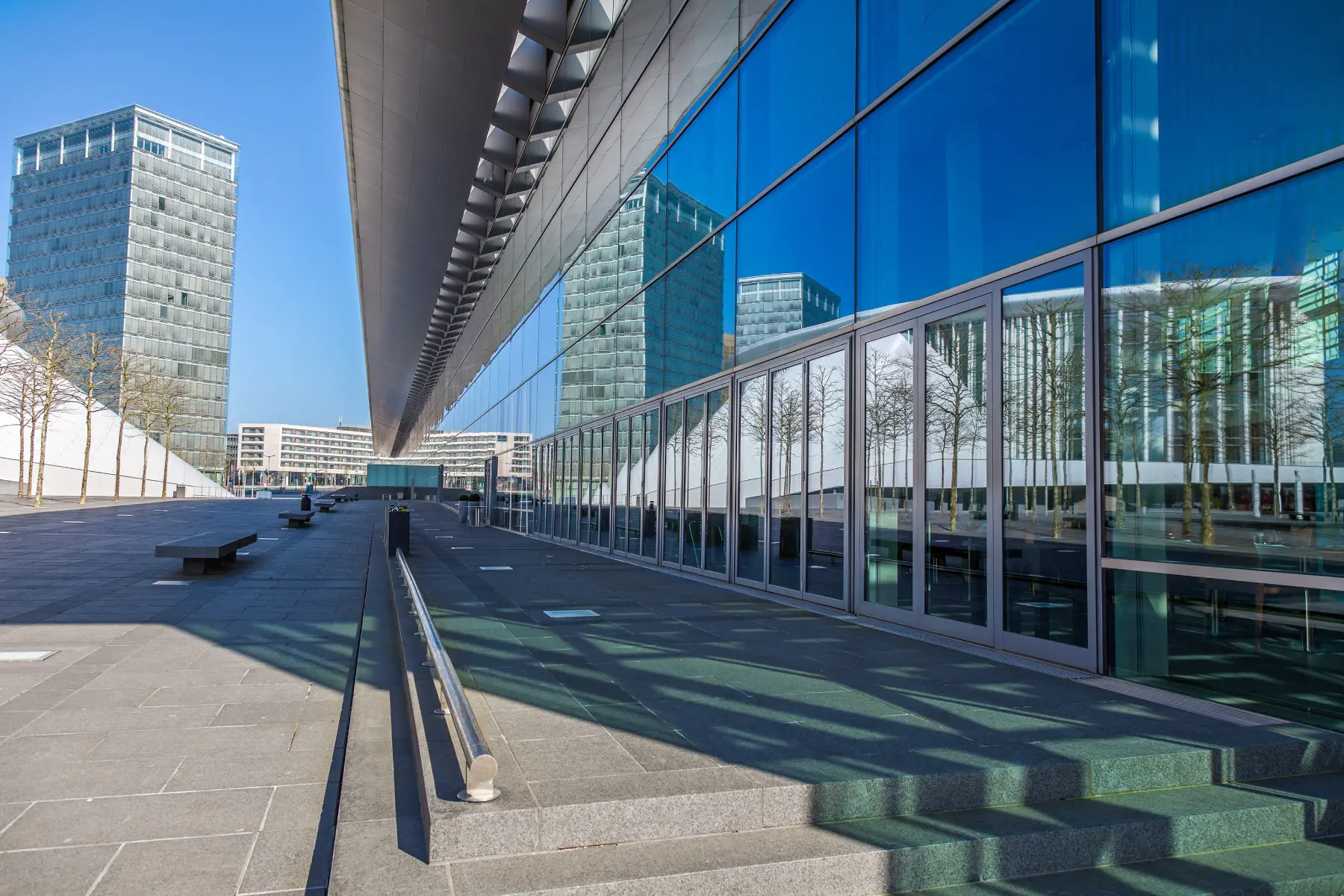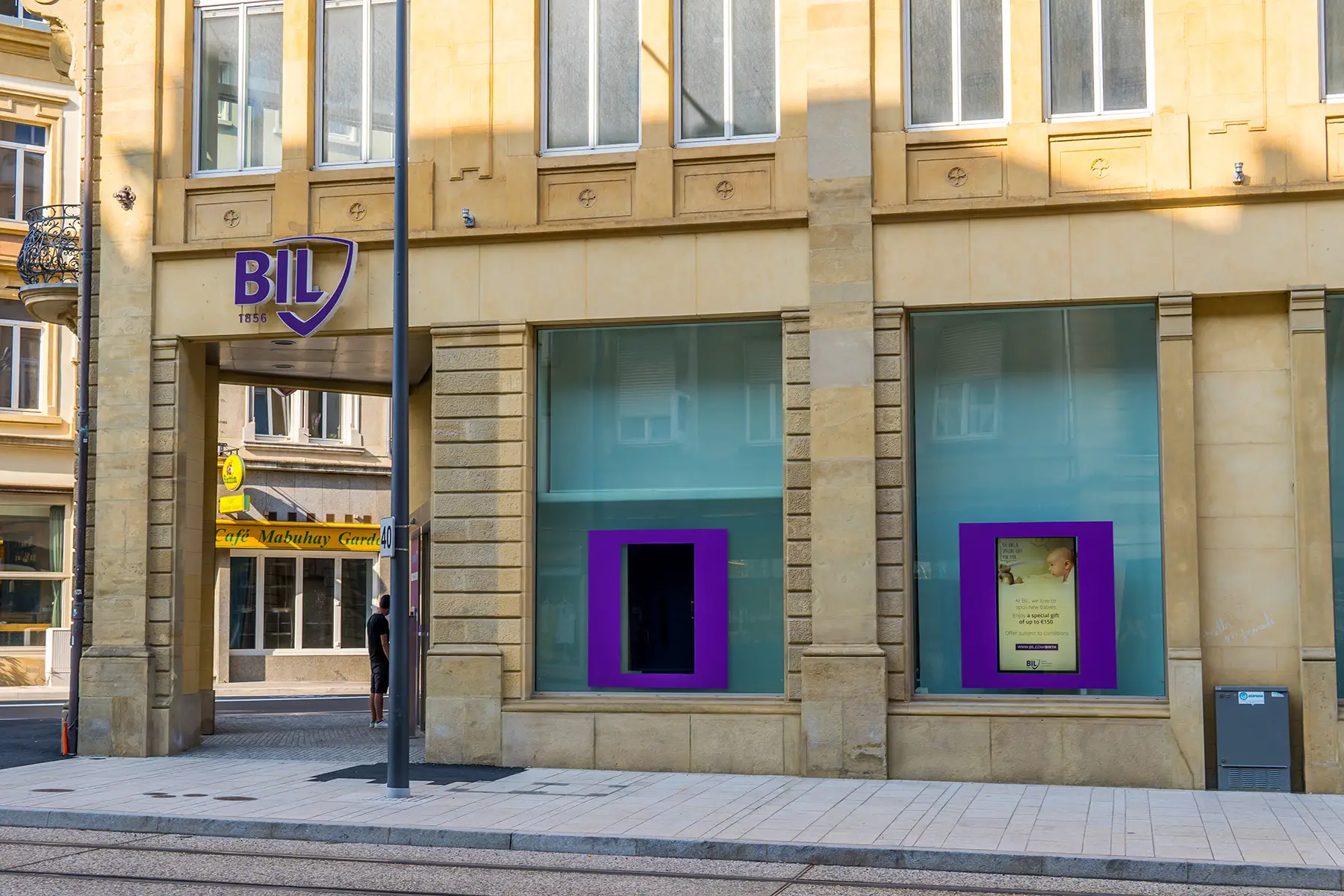Whether you are moving to Luxembourg for work or planning to start your own business there, familiarising yourself with the local business culture is vital if you want to succeed.
Given that the Grand Duchy is an epicenter of banking and finance, it is hardly surprising that the business environment is formal and pragmatic. That said, your professional life in this multilingual country is sure to be full of the unexpected.
To help you learn the ins and outs of workplace culture, this article provides the following information:
- How is the business landscape in Luxembourg?
- The business culture in Luxembourg
- What is the work-life balance in Luxembourg?
- Business structure and hierarchy
- Is there diversity in the workplace?
- Women in the workplace
- Conducting business in Luxembourg
- Business etiquette in Luxembourg
- Do employees get social security?
- How do local businesses support the community?
- Business corruption and fraud
- Useful resources
Resume.io
Trying to land a job in Luxembourg? Make sure your application is top of the pile with Resume.io's online resume builder. They provide resume templates, cover letter help, and more, making job applications effortless. Make it to the next round with Resume.io.
How is the business landscape in Luxembourg?
Luxembourg has a strong and resilient economy, boasting one of the highest GDPs per capita in the world. Although it is one of the smallest countries in Europe, it is the largest financial hub in the continent and the second largest in the world – surpassed only by the United States.
The financial industry is the main economic driver in the country and the services sector accounts for more than 87% of its economic value. Indeed, nearly one-third of all jobs in Luxembourg are tied to banking, financial services, and insurance.

However, the economy is also diverse. For instance, construction and steel production fuel the second-largest sector, accounting for just over 12% of the GDP. The technology sector is also growing, with a focus on information and communication technologies, e-commerce, and data centers. Notably, the Grand Duchy is also a leader in promoting green and sustainable finance.
When it comes to starting a business, Luxembourg boasts a supportive legal and regulatory framework, low corporate tax rates, and a stable political and legal system. Being located in the center of Europe, with a diverse, multilingual workforce also adds to its appeal as an international business destination.
On the other hand, a 2022 OECD Economic Survey also found it to be a difficult country in which to launch a small business due to the complicated online process and high administrative burdens. A shortage of skilled workers, particularly in technology, is another significant challenge.
The business culture in Luxembourg
With such a small population, Luxembourg has long relied on immigrants and cross-border workers to meet labor demands. Since these groups account for around 70% of workers, the country has a multi-faceted and diverse business culture. Many workers come from the neighboring countries of France, Belgium, and Germany so you may notice that Luxembourg has much in common with these cultures.

It is also worth noting that the Grand Duchy has three official languages – Luxembourgish, French, and German. However, English and Portuguese are also widely spoken in the country. Therefore, the business language used in the workplace may depend on the sector or nationality of the company.
Generally speaking, traditional Luxembourg companies have a more hierarchical management style. Luxembourgers tend to be reserved and appreciate a high degree of professionalism when it comes to communication, behavior, and attire. Punctuality is also important in local culture and is therefore essential to good business etiquette.
What is the work-life balance in Luxembourg?
Luxembourg is often cited as having one of the best work-life balances in the world. In fact, according to the OECD Better Life Index, only around 3% of employees in the country work very long hours in paid work, which is much less than the OECD average of 10%. Luxembourg is also on par with other OECD countries in terms of the number of hours per day that people have for personal care and leisure.
Additionally, employees have generous paid leave for holidays, maternity and paternity, and special circumstances. Moreover, labor laws strictly regulate work conducted at night and on weekends. Work-related burnout and overstress are also recognized medical conditions that warrant paid extended sick leave in Luxembourg.
The Guichet Public Service handles leave and medical certificates for residents and cross-border workers in Luxembourg. They are protected against being dismissed by their employer for 26 weeks if they fulfill their regulatory sick leave obligations.
Working hours and leave
Since Luxembourg is a country that values punctuality, you should arrive at work on time to make a good impression and align with the local business culture. That said, you shouldn’t feel compelled to put in excessive overtime, as the country strictly regulates the amount of time your employer can require you to work.
A typical workweek is 40 hours, with eight-hour workdays. The legal maximum is 10 hours in a day, with a few exceptions in extreme circumstances, and 48 hours per week. Notably, this does not include commuting time.

Companies must compensate employees for working on Sundays (with up to a 70% pay increase), nights (an additional 15%), and public holidays (a 100% supplement per hour). All workers must have 44 consecutive hours of rest weekly or receive additional paid annual leave. The minimum paid annual holiday leave in Luxembourg is 25 days, and the country has 10 public holidays.
Luxembourg is a top destination for remote workers in Europe, and more than half of companies (54%) in the Grand Duchy accept some degree of remote work. New telework agreements allow cross-border employees to still earn social security in Luxembourg while increasing the number of days they work remotely.
Business structure and hierarchy
In companies that have a traditional business culture in Luxembourg, hierarchies are distinct, strict, and relatively steep. For example, employees with a high level of seniority will typically expect to be formally addressed. That said, the culture is generally supportive and respectful toward the wellbeing and rights of employees.
In recent years, company leaders have started involving staff and subordinates more often in decision making, rather than the standard, top-down management approach. It is likely that leadership styles will continue to evolve as the country strives to be an attractive destination for tech companies and remote workers.
Is there diversity in the workplace?
As mentioned, Luxembourg is a relatively diverse country and there are legal frameworks to protect minority communities.
For instance, labor laws prohibit discrimination on the basis of sex, gender reassignment, or sexual orientation. Moreover, the Ministry of Family, Integration, and the Greater Region (Ministère de la Famille, de l’Intégration et à la Grande Région / Ministerium für Familie, Integration und die Großregion) created a National Action Plan (NAP) in 2018 which aims to combat discrimination based on sexual orientation and gender identity in various sectors such as education, healthcare, and employment.
Companies in Luxembourg are also strongly encouraged to foster an inclusive business culture on their own. Indeed, the Diversity Charter Lëtzebuerg (La Charte de la Diversité Lëtzebuerg in French) is a voluntary commitment for companies that want to commit to diversity, equity, and inclusion (DEI) initiatives beyond the legal requirements. Nearly 300 organizations from the public, private, and voluntary sectors have signed the charter.
Women in the workplace
Luxembourg is making progress towards gender equality in its business culture. For instance, the country ranks 9th in the EU for gender equality and has the highest score for equality in money and financial resources. Gender parity has also improved significantly in recent years when it comes to decision-making positions across political, economic, and social areas.
Recent gains in gender equality are credited to strong legal frameworks. For example, in 2015, Luxembourg established the Ministry of Equality between Women and Men (Ministère de l’Égalité entre les femmes et les hommes – MEGA – in French), making it the only EU country with a ministry that exclusively oversees gender equality.

Since 2016, it has been illegal for companies to pay different salaries to men and women carrying out the same work of equal value. Notably, employers face fines of up to €25,000 for non-compliance.
However, the Grand Duchy scores lower marks when it comes to the distribution of unpaid domestic responsibilities, with women spending more time than men caring for the household, children, and elderly family members.
Women’s participation and representation in the workplace
According to World Bank statistics for Luxembourg, the labor force participation rate in 2022 was 58.2% for women and 64.9% for men. Women held 28.2% of senior and middle management roles in 2020, which is on par with neighboring EU countries. Additionally, fewer women than men have informal working arrangements without social safety nets (5.8% versus 7%).
Luxembourg has set a female representation quota of 40% in national politics, in alignment with the EU standard. And as of 2022, women accounted for 35% of Luxembourg’s parliament.
Does Luxembourg have a gender pay gap?
Luxembourg’s laws for gender equality in the workplace are making a noticeable impact on the gender pay gap. On average, women are paid 0.7% less than men, which is significantly lower than the EU average of 13%.
Overall, all workers in Luxembourg are benefiting from pay regulations. For instance, since the national wage increase in April 2023, companies must pay workers at least €2,508 gross monthly if they are considered unskilled and €3,009 gross monthly if they are considered skilled. As a result, Luxembourg has one of the highest minimum wages in Europe.
Of course, the world capital of finance also attracts high salaries, with recent wage statistics showing the average monthly salary in Luxembourg to be €4,930.
Conducting business in Luxembourg
Business strategy, planning, and decision-making
Because Luxembourgers are fairly pragmatic and like to carefully calculate the potential risks, decision-making can take some time. Therefore, if you are developing a business strategy, you should consider both long- and short-term planning.
Transparency is also appreciated in Luxembourg’s business culture, so it is always a good idea for entrepreneurs to create a detailed business plan. It is also advisable to have one when approaching potential business partners in the country.
Business meetings and negotiations
Given that Luxembourg is a country that values punctuality and efficiency, you should try to schedule business meetings about two weeks in advance and avoid the months of July and August – as well as Christmas and Easter – as many people are on vacation.
Meetings tend to remain brief and focused with minimal small talk. Attendees follow protocol and rules of conduct very closely. In most cases, major decisions take place prior to a meeting. As such, Luxembourgers often set meetings to formalize a decision and provide instructions.

When entering negotiations with a business partner in the Grand Duchy, it is advisable to take a measured and rational approach. Therefore, you should avoid high-pressure tactics, as they might work against you. Similarly, boasting about prior accomplishments or making exaggerated claims will not help your case. You should prepare well when presenting your idea, offer, or business model, and maintain eye contact while speaking.
Decision-making typically occurs in private at the top of the organization. Therefore, when entering negotiations, it is worth checking beforehand that the person who will represent a certain party is actually entitled to decide.
Business networking
As in most other countries, making personal business connections is important for growing your own business or landing a new job in Luxembourg. And fortunately, the country offers many opportunities to rub elbows with other professionals.
For example, you can join several English-speaking groups and organizations that specifically target certain industries and nationalities. The Luxembourg Chamber of Commerce also provides resources to support entrepreneurs, including a calendar of educational and networking opportunities.
When searching for a job in Luxembourg, it is a good idea to update and optimize your LinkedIn profile for the role you want. And be sure to have business cards on hand when you attend a networking event or trade fair.
Business socializing
Business meals, including working lunches and business dinners, are common in Luxembourg, and colleagues often get together after office hours.
Evening events may take place in good restaurants or at a person’s home. When invited to someone’s home for dinner, don’t forget to bring a small gift such as flowers, chocolates, or a good bottle of wine.
Business etiquette in Luxembourg
Communication
A firm handshake is appropriate when greeting a colleague or business partner in Luxembourg. You should continue using people’s last names and their formal addresses until you are invited to do otherwise. When emailing a professional contact, you should also use their title and surname, such as Dear Madam President or Dear Mr. Smith.
During professional interactions, it is unlikely that you will share much personal information. In fact, polite aloofness is characteristic of many Luxembourgers. However, you should not see this as being rude, as the intention is to respect the privacy of others and keep business life and private life separate. Generally speaking, people also avoid divisive topics such as politics and religion.

When it comes to body language, good posture and frequent eye contact will send a positive message during your conversation. Aside from shaking hands, you should avoid standing too close or making unnecessary physical contact because people in Luxembourg generally value personal space. And while smiling is usually seen as a positive gesture, some might interpret excessive smiling as being insincere.
Dress code
Business attire in Luxembourg is generally formal and conservative, rather than stylish, and most people strive for a classic and sophisticated look. Men typically wear a suit and tie while women wear a suit, dress, or blouse and skirt to the office.
Gifts
Business partners in Luxembourg appreciate a card during the holiday seasons to show gratitude. And traditionally, people send New Year’s greetings throughout the month of January.
However, your business contacts will not expect you to bring a gift to business meetings. That said, if you are from another country, a small and inexpensive token from your country is a nice gesture.
Business cards
Business cards are common in Luxembourg and are often exchanged during a first meeting or networking event. A typical card mentions your job title and academic title. When doing business with Luxembourgers, it is also advisable to have cards printed in both French and German.
Do employees get social security?
Anyone who lives or works in Luxembourg must enroll in the national social security system with the Joint Social Security Centre (Centre commun de la sécurité sociale – CCSS). This provides employees and self-employed workers with health insurance, maternity and pension benefits, and insurance coverage for accidents and long-term care.
Both workers and employers make contributions to the social security system. Employees have their contributions deducted directly from their wages. As of 2023, the maximum annual contribution for employees is €146,824. However, for self-employed workers, the contributions are based on income declared in their most recent tax return.
How do local businesses support the community?
Luxembourg takes Corporate Social Responsibility (CSR) very seriously and it is an important part of the country’s corporate ecosystem.
In accordance with EU regulations, the government has implemented mandatory and voluntary CSR rules for disclosing social and environmental risks through sustainability reports. For example, companies should share information about their standards for environmental protection, social responsibility, employee relations, human rights, and more.
Luxembourg is also a world leader in sustainable finance. The Luxembourg Green Exchange was the world’s first platform for green, socially responsible, and sustainable securities. Furthermore, the Grand Duchy has a 61% market share of global assets in Microfinance Investment Vehicles (MIVs), which typically support small business owners from emerging countries.
That said, Luxembourg has also faced scrutiny regarding human rights and corporate accountability based on allegations against global corporations with headquarters in the country.
Business corruption and fraud
Luxembourg is known for its robust legal system and regulatory framework that aims to combat money laundering and financial crimes. However, there have been a few notable cases of financial scandals and controversies involving the country in the past, including the LuxLeaks scandal in 2014.
Watchdog groups have also criticized Luxembourg for its banking secrecy laws. While the government has made efforts to improve transparency, there have been instances of suspicious financial activities. In fact, the Tax Justice Network ranked the country 5th in the world for financial secrecy in 2022. The report highlighted that Luxembourg is responsible for 2.36% of the world’s financial secrecy, surpassed only by the US, Switzerland, and Singapore.
Useful resources
- Guichet Public Service – a government portal that provides information on administrative procedures for workers and companies in Luxembourg
- Luxembourg Chamber of Commerce – the official website of the Chamber which aims to develop and further the interests of local companies and businesses in Luxembourg








